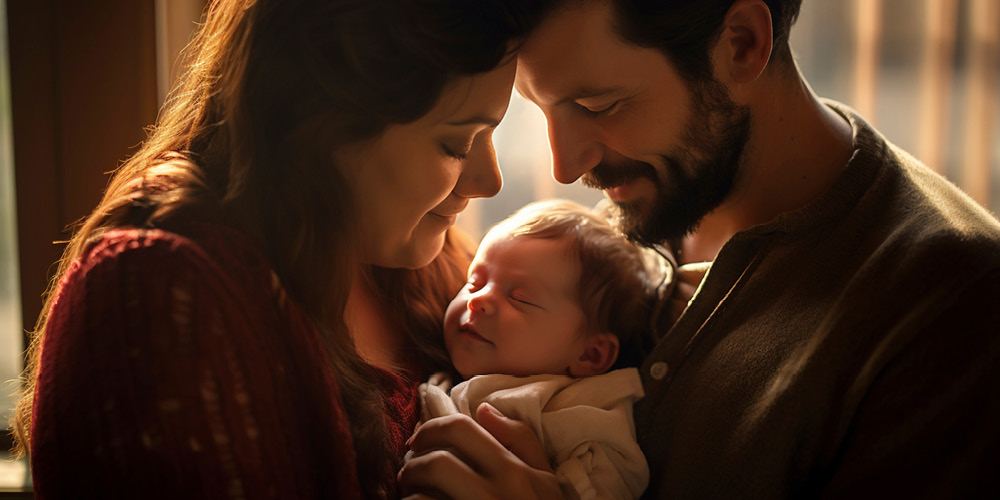Dr. Aravind’s IVF centre , which is also known for its name for Best IVF Center in Karnataka ,contains a huge number of experienced IVF specialists. According to their Proceedings, Conception or fertilization is the process by which sperm and an egg combine. Pregnancy is the result of many processes, this one among them. Pregnancy begins with this. The mix of these cells makes a one-cell thing called a zygote, with full DNA—half from each mother and father.

Getting pregnant often starts in the fallopian tube when the egg leaves the ovary during a woman's monthly period. For a baby to start growing, sperm needs to be in the tube when or just after the egg comes out. The life of an egg lasts from 12 to 24 hours. It's key to know when it comes and when the best time is to try for a baby. This is big for couples who wish to have kids.
It's when a sperm and an egg meet to make new life. This most often takes place in the fallopian tube once the egg is released. The new cell then moves to the womb and fixes to the wall. This starts pregnancy. The term Conception Meaning is "getting pregnant." But in health terms, it happens when a sperm and egg meet.
Here's what happens:
Timing is key. Your best chance is:
Sperm can live for up to 5 days, and the egg for about 24 hours. So, remember this and try it often this time.
Many look for early signs. They might show up 6–12 days after, but not for all. They can be:
Yet, these Conception Symptoms don't prove a thing. You can either contact your doctor for confirmation or take a home conception test to find out if you are pregnant.
Often, couples want to know when conception might have happened, mainly to know how far along they are. It's about two weeks after your last period for most. You can get a better understanding by keeping track of your cycle Or, use a due date to guess using a Pregnancy tool. Doctors use this way too.
Pregnancy normally goes 38 weeks from when you conceive or 40 weeks from your last period's first day.
For example:
If you want to know about the Tips to get Pregnant, switch up some everyday habits to raise your chances.
You might ask if you could be pregnant just days after intercourse. Fair question, but tests are best about 10–14 days post-conception, when the right hormone has built up. If you think you have the symptoms, be patient until you miss your period to confirm. This will give you the best results.
It isn't often, but some say they felt a little pain when the new cell stuck to the womb. This isn't a sure sign, but it is a clue. Yet, everyone is different. Some women sense a lot, some nothing till later.
What Can Hold You Back?
If it’s been over 12 months (or 6 if you're 35 or more) of trying, seeing a specialist might help.
It's Not Just Physical Trying to bring a child into the world can be hard. If it’s taking time, it’s okay 80% make it in a year. Talk with your other half often. Don't think twice about help from a fertility place if you need it. They can lower stress and show you ways to help.
The path to parenthood is yours, whether you want a child, recognize the warning signs, or discover reliable methods for becoming Conceive. Learning the real facts on the right time and way to have a baby can really help you. Get set for a new life with easy, clear steps.
With our knowledgeable staff, outstanding equipment, and thoughtful attention, you can count on us to support you at every turn. Give us a call at 9020122012 to find out more about our IVF assistance and to begin the process of starting a family. Getting good results in IVF can happen with the right plan and help. At Dr. Aravind's IVF, known as the Best fertility center, we are all in to help you reach your goals.
Fertilization age or the time of conception refers to when it actually occurs. The thing is fertilization usually happens a day after ovulation occurs, which in turn typically takes place roughly 14.6 days after the occurrence of the last menstrual period.
You have the option of calculating backward to the day of your previous period or forward to your due date . If you track your cycle, using a program or software to see if you miss your ovulation day could be useful. Pregnant women with a 28-day cycle usually become pregnant 11–21 days after their menstrual cycle begins.
Six to twelve days after becoming pregnant, the first symptoms may appear. Mild cramps, light bleeding, breast pain, fatigue, mood swings, and a slight increase in body temperature are some of these symptoms. These symptoms may appear to be typical period symptoms, however not everyone has them.
Yes, they can make it difficult to tell when you are most likely to conceive. But pregnancy is still possible. You might need assistance to monitor when you ovulate with things like ovulation tests or fertility apps to identify your best days to conceive.
There are a few things that can stop you from getting pregnant fast. Being older than 35, not having set times for your periods, some health issues like PCOS or thyroid problems, being too thin or too heavy, and how you live, like smoking or drinking a lot, may make it hard.